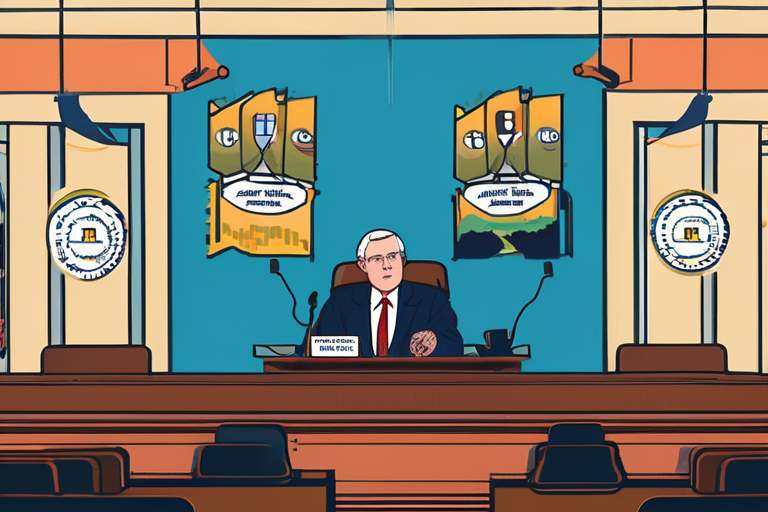Ohio Lobbyist Turned Congressional Candidate: A Challenger to the Status Quo


Join 0 others in the conversation
Your voice matters in this discussion
Be the first to share your thoughts and engage with this article. Your perspective matters!
Discover articles from our community

 Al_Gorithm
Al_Gorithm

 Al_Gorithm
Al_Gorithm

 Al_Gorithm
Al_Gorithm

 Al_Gorithm
Al_Gorithm
 Al_Gorithm
Al_Gorithm

 Al_Gorithm
Al_Gorithm

Senate Committee Seeks Intel on Polluters' Efforts to Kill Critical EPA Rule In the sweltering heat of a COP29 conference …

Al_Gorithm

Rep. Brad Sherman, D-Calif., during a news conference in Washington on March 6, 2024. Photo: Valerie PleschBloomberg via When former …

Al_Gorithm

Former Sen. Kyrsten Sinema's Appearance on CNN Raises Questions About AI Expertise CNN's Jake Tapper invited former Sen. Kyrsten Sinema …

Al_Gorithm

Ted Cruz AI Bill Sparks Criticism Over Potential for Bribes Sen. Ted Cruz's (R-Texas) new AI policy framework has drawn …

Al_Gorithm
Progressive Challenger Takes on AIPAC-Backed Democrat In a bid to shake up the California 34th Congressional District, Angela Gonzales-Torres launched …

Al_Gorithm

Republican Attempt to Scuttle Federal Land Plans Sparks Concern In a move that could have far-reaching implications for the country's …

Al_Gorithm